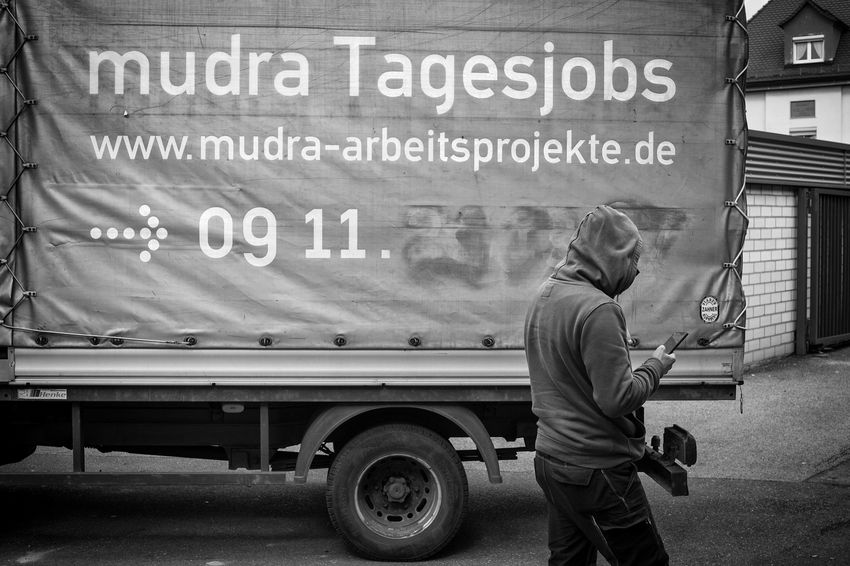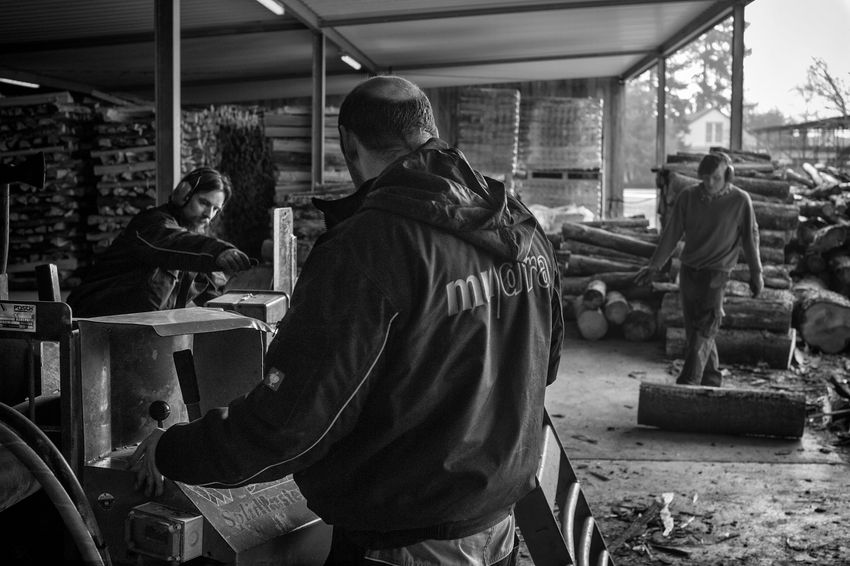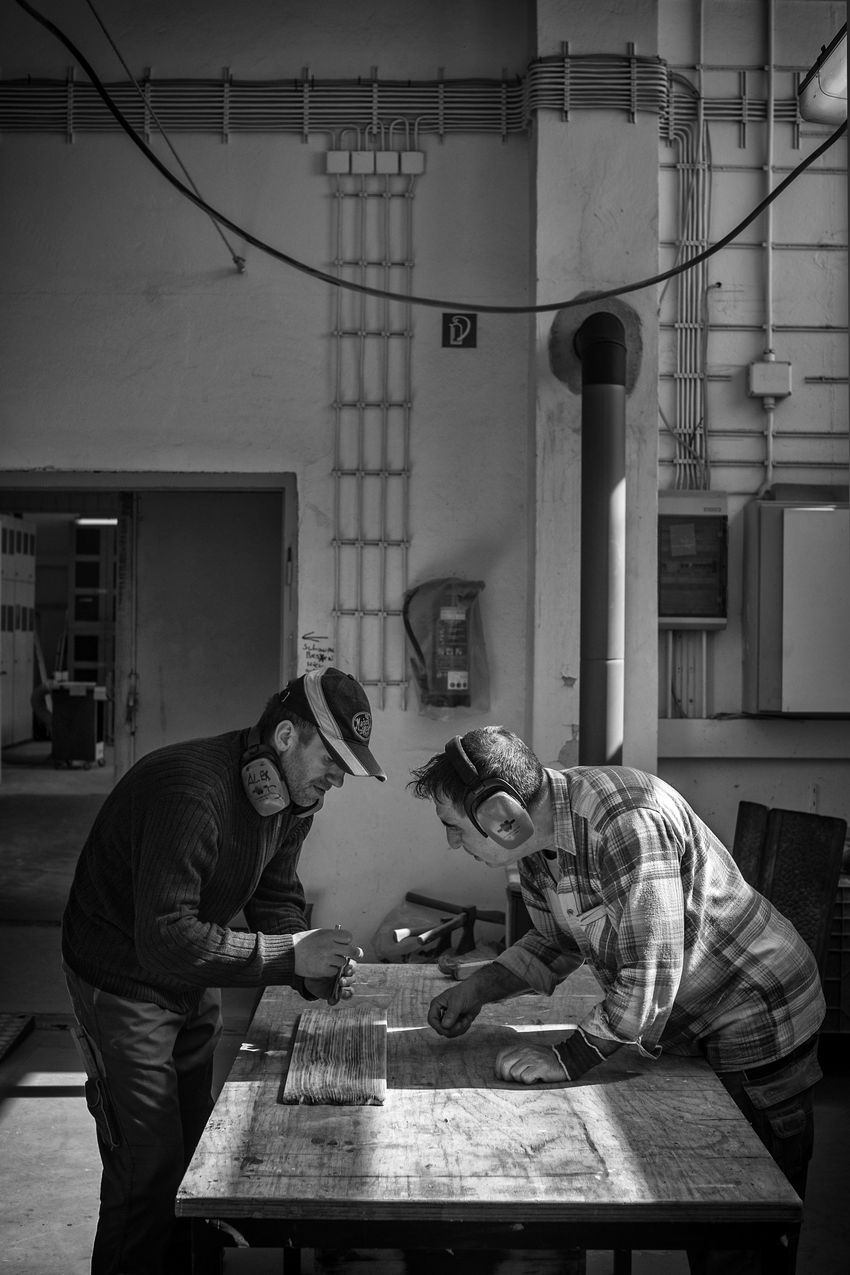"Addiction is part of our society. It’s just as much of a reality as displacement and environmental degradation."
If there is anyone who knows about addiction assistance, it is Norbert Wittmann. He is Managing Director of Mudra e.V., an alternative youth and drug rehabilitation organisation in Nuremberg. Wittmann established the organisation’s youth department and has been at the helm for many years. He has spoken about substitution treatment as a visiting lecturer, has developed and led several government pilot projects for innovative drug work and co-authored the 2016 publication S3 Practice Guideline on Methamphetamine-related Disorders. We spoke to Norbert Wittmann about why merely treating people with a drug use disorder as criminals causes more problems than it solves and why understanding addiction plays a key role in enforcing drug policies in a practical fashion.
GPDPD: Why is the work of Mudra e.V. important?
Norbert Wittmann: Mudra’s motto is: be close to the action! As well as being a provider of practical support, we also see ourselves as a mouthpiece for those affected. In our daily dialogue, we critically scrutinise ourselves and our work, check whether what we are doing is suitable for our particular purpose and meets requirements, and develop new methods and approaches. This makes up a large part of our motivation and satisfaction. Over the years, Mudra has built up an almost seamlessly interlinked care network for the region, which provides quick and coordinated support to those affected and their families at every stage. Offering everything from a single source means rapid communication and trusted partners, facilitating effective and sustainable developments for the people involved. Addiction work is also a mission being undertaken on behalf of the whole of society: young people need education and information; those affected need professional help with survival right through to assistance with withdrawal and integration; families need support; neighbours, tradespeople and public spaces need security in the form of well-functioning points of contact; employers need help retaining staff; the police and those responsible for the rule of law need support in being able to meet challenges; policy-makers need the impetus and confidence to put public money to good use; and society needs to understand how to deal with addiction in a clever way and how to give the youngest generation the right encouragement.

What do you understand by Harm Reduction and how do you put it into practice?
We take Harm Reduction to mean the combination of all measures that serve to prevent or minimise harm to drug users. Since the very beginning, we have given injections to heroin users, something that at the time was still against the law. Ultimately, it took an AIDS virus for standard harm-reducing services to gain universal acceptance. Defining Harm Reduction nowadays is much more complex than it was in those early days. Methods that focus on forms of consumption and different drugs are of course key, such as needle exchange, smoke foil, sniffer tubes and active filters. It is still also about preventing the transmission of diseases such as hepatitis C or AIDS, which includes condoms and safer-use strategies. We teach people about alternative forms of application that are less dangerous and prevent transmission. However, we also take a broader view of Harm Reduction and deliberately include measures that take account of affected people’s environment, families, partners and children, but also their setting. For us, Harm Reduction is above all a way to build trust and establish contact with users.
What is Mudra e.V.’s day-to-day work like?
Varied and diverse! Our goal is to be close to people in all areas of life – from street work to aftercare – and to work together to identify their needs and create services to meet them in an alternative and healthy way. Drug use is always about needs that are not being met.
If you are able to say: what group of people do you work with most?
Persons who are severely addicted to so-called hard drugs have been the focus of our work from the outset, and this target group is of course still very important to us. Over the decades, however, society as a whole, the range of narcotic drugs on offer and the target groups have all become more diverse. Nowadays, we try to ensure that our services reach as many affected people as possible, regardless of their age, nationality and gender and the illegal substance involved. It is also important to us to provide support at every stage of the consumption process. We would very much like to offer even more during the stages before and at the start of drug use. Unfortunately, though, targeted prevention is very hard to finance, because the question of who is responsible for what is a complex one. When help can be given at an early stage, it can achieve a great deal.
What positive impact can you have on the people affected? Can you give some successful examples of your work?
The success of our work starts with preventing addiction, ensuring survival and stopping harm from being caused further down the line. We accompany people through every stage and try to provide them with positive support. We can achieve a lot in this aspect of our work, from taking baby steps one day at a time to developing entirely new concepts of living. In order to get this opportunity, however, you have to survive, and it is precisely here that our work begins. Time and time again, I have learned that you should never give up on anybody.

Was there a specific event that prompted you personally to start this work? What has been your motivation so far?
The opportunity to shape yourself, experiment and ‘try out’ your ideas is the strongest motivation imaginable in my opinion. Now, as Managing Director of Mudra e.V., it is important to me to offer these opportunities to my employees. In doing so, I come up against a highly complex and confusing maze of responsibilities in which it is not only those affected that fall into the cracks between the systems. Things have got sluggish and cumbersome, preventing rapid innovation tailored to the needs of the recipients, such as in the areas of digitalisation and prevention. I am also motivated by not shying away from sensitive subjects to give social work a nimbler and more flexible framework in which to operate.
Do you encounter any resistance in your work? Do you face any prejudices?
Our work is highly appreciated by friends and acquaintances, as well as amongst those we help. However, drug addiction is not ‘nice’ and it also makes a lot of people anxious. Claims such as ‘it’s their own fault!’, this persistent prejudice that has evolved over time, creates a sense of resistance to and rejection of our work but also, in particular, our clients. This attitude is being fuelled by a legal system that divides drug use into ‘legal’ and ‘illegal’. This creates a second-class status, and illegality – by its very nature – suggests the guilt of one person and the innocence of another. Although this is complete nonsense in terms of the science behind addiction, it still has a negative and stigmatising impact on those affected and their families. It is worth remembering that addiction has been a globally recognised disease for more than 40 years.
Commitment to drug policy can only succeed if we work together. What does the cooperation with other institutions look like?
To make needs-oriented development and progress possible, information needs to be passed from the grassroots to the high-level decision-makers. We need to share the knowledge and experience of different branches of science and research and areas of activity and learn from one another. Our clients benefit from this. Medicine is still highly valued from a historical perspective, especially since addiction is a disease. Germany is home to numerous regional and national partnerships and networks; both are important. Regions, cities, towns, local communities and federal states face different challenges and find themselves in different social, economic and cultural circumstances. All in all, our addiction assistance and drug rehabilitation system is extremely complex and nuanced in terms of its legal and financial framework, responsibility and financing. So it’s important to be active on all levels, including in the field of drug policy and in the public sphere. Ultimately, the general public and society at large also benefit from social work, be it directly through the support provided or indirectly through the mitigation of social problems, which reduces the burden on society. There is certainly still an awful lot to be done in this area. Other parts of Europe and the world are enjoying much more success presenting the benefits of social work to society and are thus receiving a fitting degree of appreciation. Successful social work is not just of great value to those affected, but to society as a whole too. In Germany, the cost of the harm caused by addiction runs into the hundreds of billions of euros every year.

Has there been a change in the perception of people who use drugs and how these people are treated?
Illegal drugs have a different level of acceptance to ten or twenty years ago. This applies in particular to so-called soft drugs, but also to party and performance drugs. Society is changing, and the culture of consumption along with it. The motivation behind drug use varies widely, which also calls for aid and counselling services that are just as diverse. In addition to the traditional addicts in need of a form of anaesthesia, we’re experiencing a culture of fun and high performance that’s all about self-marketing, entertainment and pushing the limits. Nevertheless, there are still prejudices that see drug addiction not as an illness requiring treatment but as someone’s own fault, making help and reintegration more difficult. Drug work is also always a battle for the public eye, understanding and the dismantling of sweeping generalisations.
To what extent are their needs incorporated into your work?
Discussion and dialogue at all levels is important to us. Nobody is served by keeping their back turned before suddenly finding themselves affected. Drug addiction is still a shame-ridden and often taboo subject. Addiction is part of our society. It’s just as much of a reality as displacement and environmental degradation. You can’t ban any of this; neither can you eliminate it by punishing or ostracising people. Addiction is always extremely traumatic for those affected and their families, and it is only through the joint efforts of everyone involved that addicts can be provided with the support they need to get back on track and, in the best-case scenario, find a way out of their addiction. If you have to go it alone, you’ll be helpless.
How do you think cooperation with other countries, such as your work in Thailand, can benefit from your experience? And what have you taken away from your exchange with Thailand for yourself and your work?
Speaking for myself, I was fascinated by the discipline and energy with which drug policies are being turned on their heads there. This is undoubtedly being done out of necessity, but it is noteworthy and welcome all the same. We came across enormous amounts of medical and psychiatric expertise at all levels and identified some developments that were ahead of ours. The speed at which changes are being initiated deserves great respect. It was also interesting to observe that many people failed to understand this speed and shift in policy and are thus now criticising or rejecting it. When drug use has been punished harshly for decades, they are failing to see why rehabilitation centres are now being funded and harm-reducing measures pursued. Paradoxically, however, addiction and addictive behaviour are widespread and are affecting many families. Broad swathes of the population lack the necessary education and awareness. The first few prevention attempts have also shown that traditional attitudes and thinking purely in terms of black and white are exerting a significant influence. In both Thailand and Germany, people’s internal attitude, their idea of what it means to be a human being and their understanding of addiction play a key role in how drug policies and strategies are implemented in practice. Dealing with drug and addiction policy in a foreign country inevitably prompts you to examine the addiction assistance strategies and diversity of services offered back home. This is extremely beneficial for us, as we rarely have time and space for this in the daily challenges of our everyday lives. Here, as there, the focus is on medical and psychiatric help and the target approach is abstinence, much more so in Thailand than here. However, addiction is extremely complicated and poses a challenge to all of society; as well as medical and psychiatric aid, it requires prevention, the organisation of social spaces, social work, family support, work, nursing care and a great deal more. Making the voices and needs of those affected heard in this debate is the key and valuable contribution that mudra e.V. can make, both in Thailand and Germany. I am very grateful for this opportunity.
What changes are you hoping for in future? What will need to be in place for these to happen?
The ability to confess an addiction without being judged. Users of illegal drugs cannot be allowed to be treated any differently to those who consume other substances. This only ostracises them, costs a huge amount of money and resources, hinders their reintegration and does lots more harm besides. All of us consume drugs, and the distinction between good and bad is both artificial and damaging. Trust in people and early professional prevention can help to considerably reduce the harm caused by addiction. Drugs are not evil, but people need to learn how to manage them, as the vast majority of alcohol users successfully do for instance. No one who is largely satisfied with their life would put that life at risk. Drugs are not the problem, but they are abused in order to solve problems. We would all do well to shift our focus away from the substances themselves and onto the problems and needs and the problem-solving skills required. Therein lies the solution. Satisfaction is the best protection against addiction, especially when the temptations are becoming more and more complex and varied. Let us focus on recognising what is really needed to achieve personal satisfaction and what we can all do to this end.
About Mudra e.V.
Active for over 40 years, the Nuremberg-based organisation Mudra – Alternative Jugend- und Drogenhilfe e.V. is one of Germany’s oldest addiction assistance facilities. The association embraces an approach based on acceptance that comprises a broad range of outpatient and inpatient services: from counselling for affected persons and their relatives, prevention, street work, care and support with drug substitution through to therapeutic aids and employment and training projects aimed at reintegrating people into the world of work. In doing so, mudra e.V. hopes to alleviate the drug problems facing individuals and society at large and help those affected to lead an independent and satisfied life.
